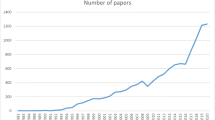Abstract
Multimedia cases are perceived to be a means of bridging the gap between theory and practice in teacher education. However, little is known about how prospective teachers actually learn with these cases. In this paper, we examine how multimedia cases can stimulate reflective thought among preservice teachers. Gestalt psychology is employed as a theoretical lens to examine how seven preservice teachers work with a multimedia case. Data were collected by means of audiotaped work-aloud protocols, interviews and questionnaires. Results indicate that preservice teachers remain at low levels of abstraction of their ideas about teaching as a result of case examination. Directed assignments and collaboration among prospective teachers were a useful, but not always necessary, means of stimulating discussion on the multimedia case. The study leads to the conclusion there is still much to be learned about how prospective teachers interact with multimedia case, particularly about how such cases might stimulate reflective practice.
Similar content being viewed by others
References
Anderson, R. D., & Mitchener, C. P. (1994). Research on science teacher education. In D. L. Gabel (Ed.), Handbook of research on science teaching and learning (pp. 3-44). New York: Macmillan.
Cennamo, H. S., Abell, S. K., George, E., & Chung, N. L. (1996). The develop-ment of integrated media cases for use in elementary science teacher education. Journal of Technology and Teacher Education, 4(1), 19-36.
Driver, R., Asoko, H., Leach. J., Mortimer, E., & Scott, P. (1994). Constructing scientific knowledge in the classroom. Educational Researcher, 23, 5-12.
Dolk, M. L. A. M. (1997). Onmiddellijk onderwijsgedrag (Immediate teaching behaviour). Utrecht, The Netherlands: WCC.
Eraut, M. (1995). Schön shock: A case for reframing reflection-in-action? Teachers and Teaching: Theory and Practice, 1, 9-22.
Kearsley, G. (1998). Exploration in learning and instruction: The theory into practice data base. George Washington University. http://www.gwu.edu/tip/wertheim.html
Kenny, R. F., Andrews, B. W., Vignola, M. J., Schilz, M. A., & Covert, J. (1999). Towards guidelines for the design of interactive reflective decision-making of preservice teachers. Journal of Technology and Teacher Education, 7(1), 13-31.
Korthagen, F. A. J., & Lagerwerf, B. (1996). Reframing the relationship between teacher thinking and teacher behavior: Levels in learning about teaching. Teachers and Teaching: Theory and Practice, 2(2), 161-190.
Korthagen, F. A. J., & Kessels, J. P. A. M. (1999). Linking theory and practice: Changing the pedagogy of teacher education. Educational Researcher, 28(4), 4-17.
Merseth, K. K. (1996). Cases and case methods in teacher education. In J. Sikula (Ed.), Handbook of research on teacher education (pp. 722-746). New York: Macmillan.
Putnam, R. T., & Borko, H. (2000). What do new views of knowledge and thinking have to say about research on teacher learning. Educational Researcher, 29, 4-15.
Schön, D. A. (1983). The reflective practitioner. New York: Basic Books.
Schön, D. A. (1987). Educating the reflective practitioner: Toward a new design for teaching and learning in the professions. San Francisco: Jossey-Bass.
Tobin, K., Tippins, D., & Gallard, A. J. (1994). Research on instructional strategies for teaching science. In D. L. Gabel (Ed.), Handbook of research on science teaching and learning (pp. 45-93). New York: Macmillan.
Van den Akker, J. J. H. (1999). Principles and methods of developmental research. In J. Van den Akker, R. Branch, K. Gustafson, N. Nieveen, & T. Plomp (Eds.), Design approaches and tools in education and training (pp. 1-14). Dordrecht, The Netherlands: Kluwer Academic Publishers.
Van den Berg, E. (1996). The effects of inservice education on implementation of elementary science. Enschede, The Netherlands: University of Twente.
Van den Berg, E. (1999). Formative evaluation of a multimedia case: A test of practice. Enschede, The Netherlands: University of Twente.
Van den Berg, & Visscher-Voerman, I. (2000). Multimedia cases in elementary sci-ence teacher education: Design and development of a prototype. Education and Information Technologies, 5, 119-132.
Van der Geest, T. M. (1991). Tools for teaching writing as a process: Design, devel-opment, implementation and evaluation of computer assisted writing instruction. Enschede, The Netherlands: University of Twente.
Walker, D. F. (1992). Methodological issues in curriculumresearch. In P. W. Jackson (Ed.), Handbook of research in curriculum (pp. 98-118). New York: Macmillan.
Winn, W., & Snyder, D. (1996). Cognitive perspectives in psychology. In D. H. Jonassen, Handbook of research for educational communications and technology (pp. 112-142). New York: Simon & Schuster, Macmillan.
Author information
Authors and Affiliations
Rights and permissions
About this article
Cite this article
van den Berg, E. An Exploration of the Use of Multimedia Cases as a Reflective Tool in Teacher Education. Research in Science Education 31, 245–265 (2001). https://doi.org/10.1023/A:1013193111324
Issue Date:
DOI: https://doi.org/10.1023/A:1013193111324




